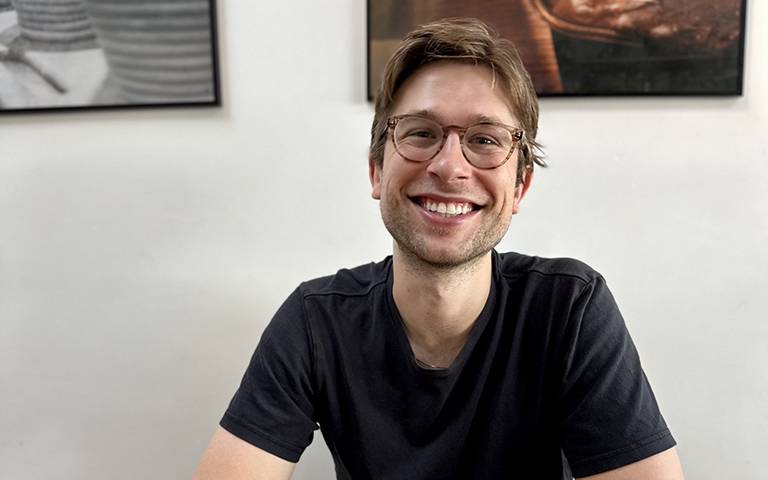Matthew Doyle, MSc Environment, Politics, and Society
Meet Matthew, a recent graduate from our MSc in Environment, Politics, and Society programme.

13 December 2023
He tells us about his experiences exploring the impacts politics can have on our environment and his dream of helping governments and businesses engage with climate action.
Why were you interested in studying for an MSc in Environment, Politics, and Society?
“I studied politics during my undergraduate degree, and after working for several years post-university, I wanted to reengage with academic critical thinking.
“More specifically, I was looking for a programme that focused on interdisciplinary environmental issues, as my academic interests shifted towards environmental policy and politics with interests in agriculture and food, urban planning, and climate change.
“UCL's MSc programme in Environment, Politics, and Society was the perfect fit.”
And why did you choose to study at UCL?
“Coming from the USA, I was interested in studying in the UK. One of my partner’s friends studied at UCL and recommended that I look at the University, given the quality of their education and time spent in London.
“Because of my interest in politics and the environment, UCL offered an excellent education that focused on student and academic diversity as central to the learning experience.
“I knew my classmates would be from all over the world, and I would be able to learn from their perspectives and experiences as much as from the lecturers and readings.
“I was also excited to study in London, learning about, and from, the city itself.”
What were the most interesting or engaging things you learned on the course?
“There are too many to choose from! One idea that comes to mind is that early into the first term, Professor Andrew Barry lectured on chemical geographies and materiality in politics.
“In the age of intense climate change, understanding how we affect the material world and how the material world affects us is vital.
“A friend and I talked for hours about the implications of this way of thinking and were so excited to see how academics were thinking about materiality and politics in a way that neither of us had previously thought.
“My interest in these topics continued throughout my dissertation, which Professor Barry advised on.”
Can you tell us about any particularly memorable experiences from your time as a Master's student with us?
“My dissertation was the most memorable experience from my time as a master's student.
“At the start of term two, I remember talking with several faculty members, who were willing to listen and offer advice on what to read and how to develop my interests into thoughts and potential avenues for research.
“By reflecting on my academic interests and space in the literature, I became interested in returning to my hometown in Iowa and considering the politics of flooding.
“While initially hesitant to study a place I know so well, Eszter Kovacs was integral in pushing me to be reflective and embrace the excitement I had when thinking about the problem of flooding.
“Researching a place I thought I knew so well highlighted how much I did not know and could learn from people invested in the community.
“As the project developed, engaging with my advisor, Professor Barry, the literature, and the case was incredibly rewarding.
“While the state of the environment and climate change seems overwhelming, my research showed me how many people care about their community and work to make it better. I will always cherish my research.”
What do you hope to do in the future?
“I want to work with governments and corporations to improve how they engage with their citizens, the land, and other resources, such as housing, transit, and food.
“Given my experience with UCL, I am also considering pursuing a PhD after a few years of work to engage with geographic and political research.”
Would you recommend studying Environment, Politics and Society in the Department and why?
“I would definitely recommend studying the MSc Environment, Politics, and Society programme (EPS) in the Department.
“The faculty and students within the EPS course were wonderful and had diverse academic interests.
“Coming from the USA, studying geography is not as common as in the UK, but it is an essential way to learn in the world we live in. It is also a great way to study the environment.
“A programme like EPS is interdisciplinary and sits at the intersection of natural and social sciences.
“Given recent complex problems and developments, such as climate change and COVID-19, understanding the world more holistically is as important as ever.”
More Information
Interested in following in Matthew’s footsteps? Find out more about our MSc Environment, Politics and Society course and see our other degrees in the Study section.
 Close
Close

